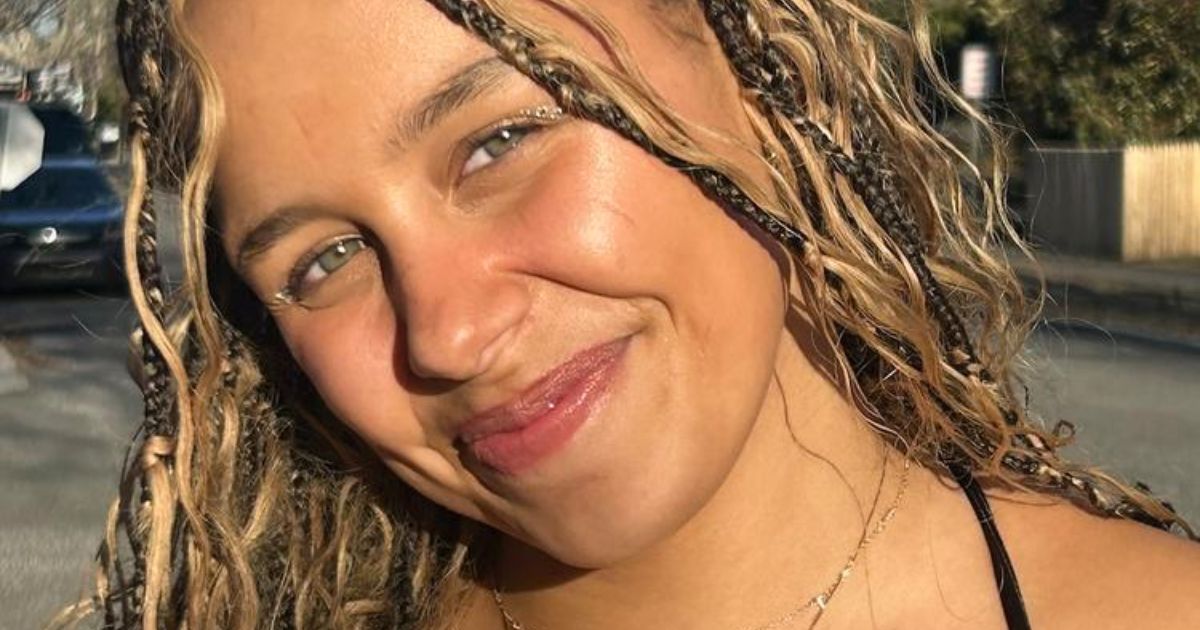Faith Welch, a 17-year-old student leader from Long Island, was not just there to talk about her local Juneteenth event as she took the stage to give a speech at a board meeting in Greenport Village, Southold Town, in late June. Given that she and her boyfriend, Juilliard cellist Jon Luc Johnson, had been stopped by Southold police two weeks before when they were traveling in an Uber to a nearby Strawberry Festival, she was there in protest of racial profiling.
The alleged cause? They “looked suspicious,” claimed someone.
Faith Welch, a top student, cadet, cheerleader, and community activist, devoted her high school years to studying African American history and reclaiming the largely ignored histories of Black communities on Long Island.
But on that particular summer night, she was living the kind of story she had been trying so hard to locate: a young Black person who was seen as “threatening” just for being alive.
“We weren’t walking around,” Faith Welch told her largely white neighbors and co-residents. “We weren’t bothering anyone, we were standing on the curb doing what anyone who scheduled an Uber would be doing: waiting.”
Was Faith Welch’s ‘Suspicious Behavior’ Just Standing While Black?
A 911 caller reported that Welch and Johnson were both searching parked cars, entering and exiting stores, and asking for money, according to the Southold Police Department. However, two teenagers were just waiting on a curb when the police arrived.
The tone slowly loosened up as two officers said sorry and accepted how bad things appeared shortly after IDs were checked and backup got there. When Welch’s mother later called the department, she found that the caller’s account had changed from detailed charges to just stating that the teens “looked suspicious.”
“That’s racial profiling. And it could have ended very differently,” Welch said outright.
Help racial profiling and police brutality end now! pic.twitter.com/iJKMiFWMBT
— Racial profiling and police brutality (@stop_RacialProf) May 30, 2019
Although Southold Police Chief Steve Grattan said the officers “handled the call properly,” he refused to look into what happened or the caller. Although critics pointed out the gap between rules and awareness, he referred to the department’s yearly racial bias training. “We all need to stand up,” said Greenport Mayor Kevin Stuessi, rather supportively.
The most visceral response, however, came from Black Councilman Brian Mealy, who is a member of the local Anti-Bias Task Force. He broke down as he related his traumatic experiences of police stops and the advice that his father had given him on surviving any and every confrontation with law enforcement personnel back when he was a child.
A Voice That Won’t Be Silenced
Faith Welch is not like most teenagers. She won the coveted Princeton Prize in Race Relations, initiated the African American Studies club at her school, and helped with organizing Juneteenth parades.
Days after speaking at the town meeting, Welch told those in Mitchell Park during this year’s Juneteenth celebration: “Despite all the accolades attached to my name, none of them shield me from being a target of this country’s deeply rooted culture of racism.”
She talked about how her activism hasn’t always been approved of. She has been mocked for embracing her natural hair, referred to as “too activisty,” and criticized for bringing up race.
Little Black girls are so beautiful! Your skin has been kissed by the sun, and your hair is a crown of glory with coils that spiral toward heaven. You are made in the image of Divine perfection. Don’t ever forget that! #BlackGirls #BlackGirlMagic. #NaturalHair #BlackTwitter pic.twitter.com/Jc2Koeouh7
— Black, Beautiful, & Blessed (@MelanatedTalk) December 20, 2024
However, those problems only reinforced her resolve to draw attention to Long Island’s lost Black past by looking into grave sites, keeping track of untold stories, and retelling them on local radio stations and in the Suffolk Times.
Faith Welch calls for more than just an apology.
She asked at the board meeting that anyone who makes false 911 calls should be punished and held responsible, especially since their racist beliefs put at risk young people of color. She objected to the small-town tendency to prioritize familiarity over justice by saying, “Stop letting things slide because you know their family.”
Welch’s long-term goal is to practice law for African Americans who have been wrongfully sentenced to prison. But one speech, one archive, and one moment of speaking the truth at a time, she has started going after justice today.













